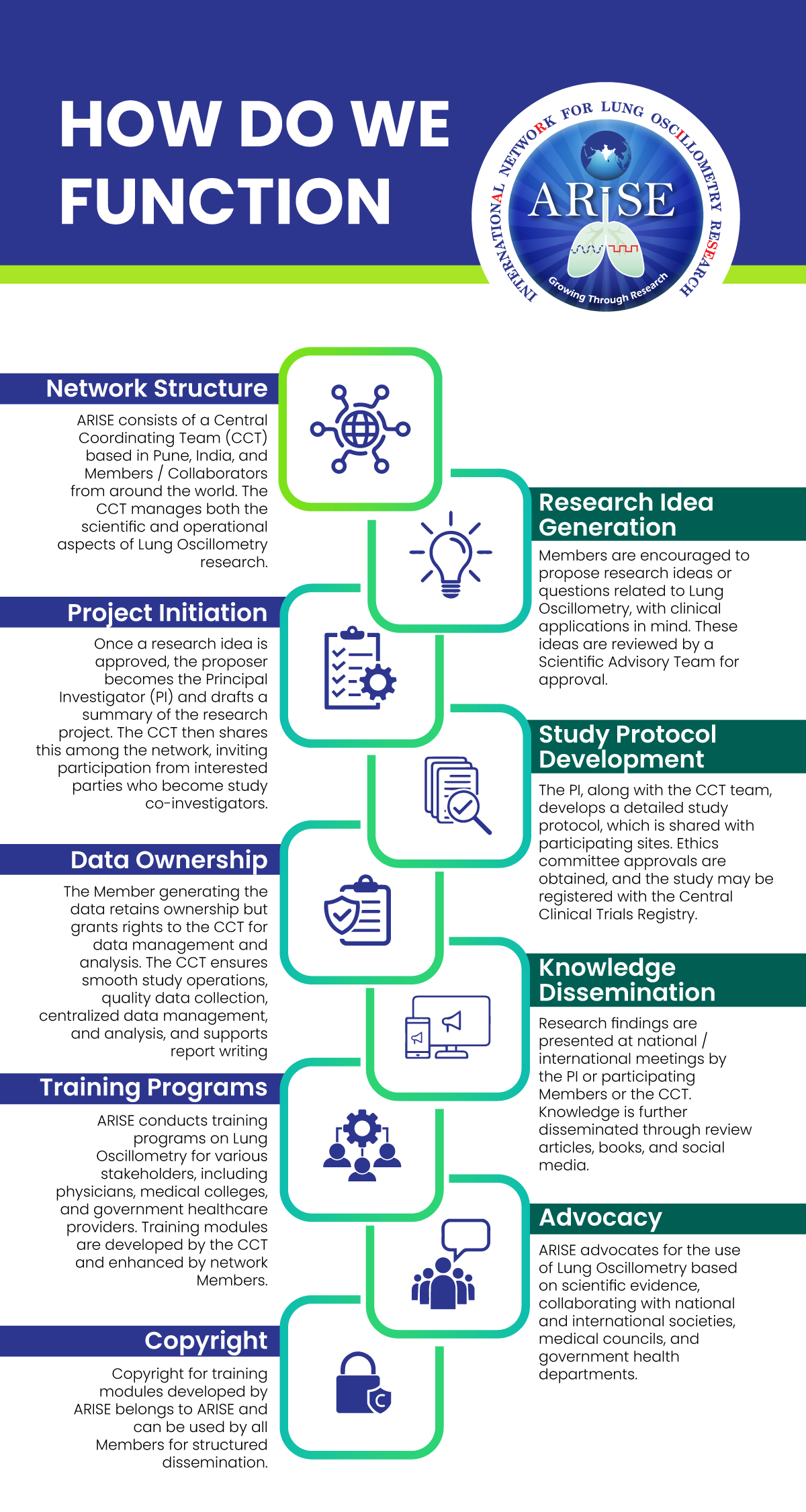How does ARISE work?
ARISE (Airway Research in India for Symptom Evaluation) is a collaborative platform designed to advance research in the field of Lung Oscillometry. Here’s a simplified overview of how ARISE works:
- Network Structure: ARISE consists of a Central Coordinating Team (CCT) based in Pune, India, and Members/Collaborators from around the world. The CCT manages both the scientific and operational aspects of Lung Oscillometry research.
- Research Idea Generation: Members are encouraged to propose research ideas or questions related to Lung Oscillometry, with clinical applications in mind. These ideas are reviewed by a Scientific Advisory Team for approval.
- Project Initiation: Once a research idea is approved, the proposer becomes the Principal Investigator (PI) and drafts a summary of the research project. The CCT then shares this among the network, inviting participation from interested parties who become study co-investigators.
- Study Protocol Development: The PI, along with the CCT team, develops a detailed study protocol, which is shared with participating sites. Ethics committee approvals are obtained, and the study may be registered with the Central Clinical Trials Registry.
- Data Ownership: The Member generating the data retains ownership but grants rights to the CCT for data management and analysis. The CCT ensures smooth study operations, quality data collection, centralized data management, and analysis, and supports report writing.
Manuscript and Publication: The PI takes the lead in writing the manuscript as the first author, with support from the CCT and other Members. Authorship is based on contribution to the study. CCT members contributing to the study are also listed as authors. The manuscript is submitted for publication in peer-reviewed journals.
In summary, the manuscript is written by the PI as the first author, with support from the CCT and other members. Authorship is based on contribution to the study, and CCT members contributing to the study are also listed as authors. The manuscript is then submitted for publication in peer-reviewed journals.
- Knowledge Dissemination: Research findings are presented at national/international meetings by the PI or participating Members or the CCT. Knowledge is further disseminated through review articles, books, and social media.
- Training Programs: ARISE conducts training programs on Lung Oscillometry for various stakeholders, including physicians, medical colleges, and government healthcare providers. Training modules are developed by the CCT and enhanced by network Members.
- Advocacy: ARISE advocates for the use of Lung Oscillometry based on scientific evidence, collaborating with national and international societies, medical councils, and government health departments.
- Copyright: Copyright for training modules developed by ARISE belongs to ARISE and can be used by all Members for structured dissemination.
Please note that this is a simplified overview, and the actual process involves collaboration, data collection, analysis, and dissemination of findings in a structured manner. A flowchart could visually represent these steps, illustrating the workflow of ARISE.

